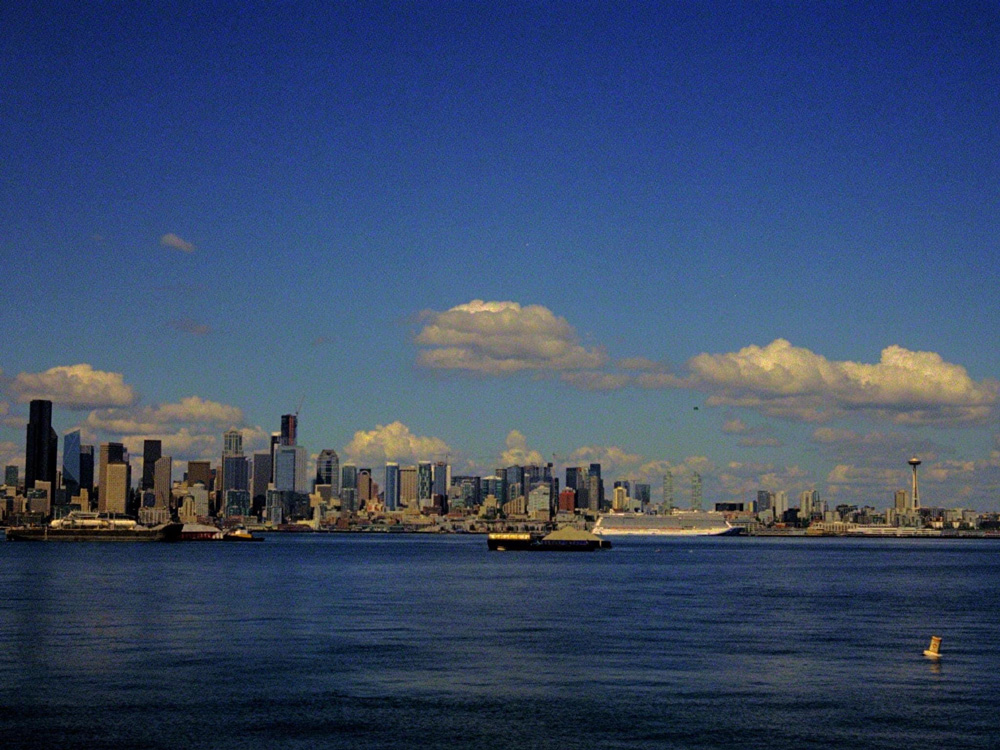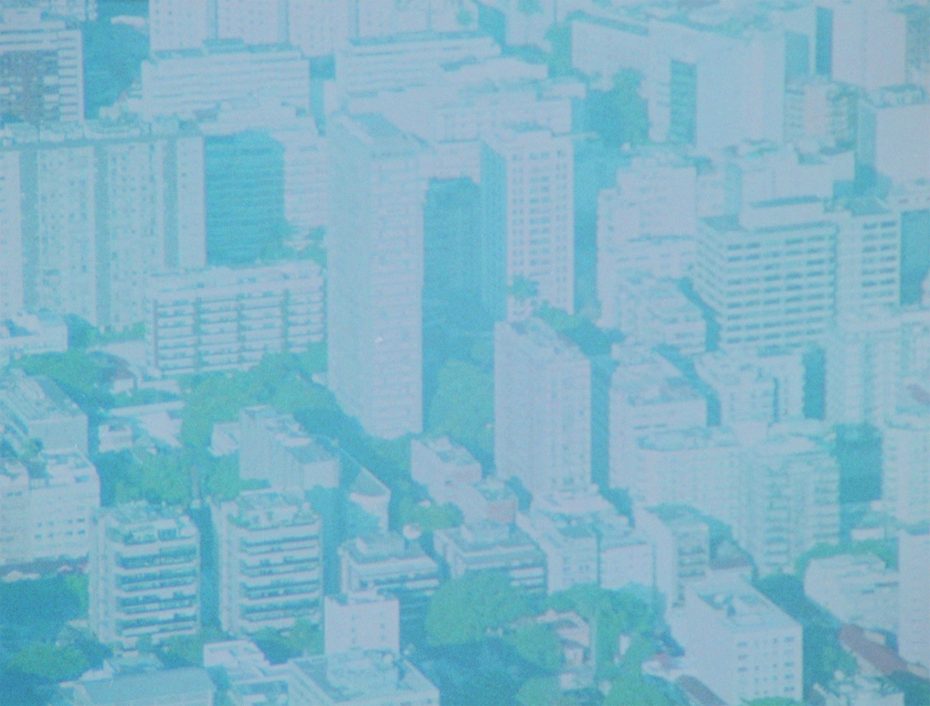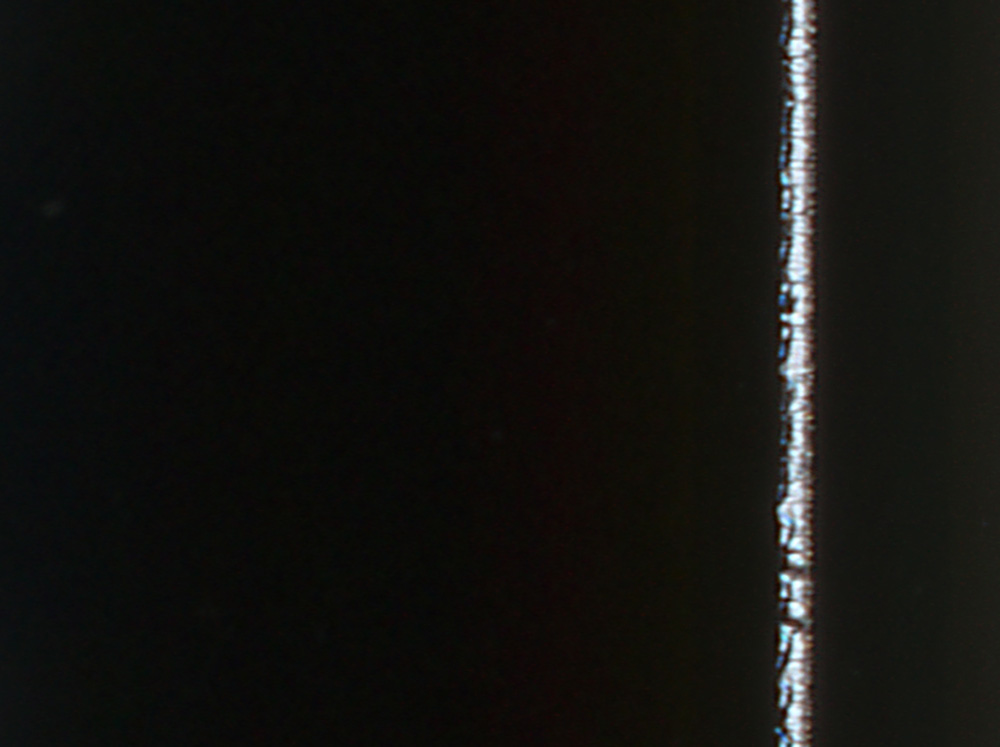Selection #10
When our vision is affected, the elements of the earth are altered. The fog of distant memories rendered thick and tangible, which wisp into nothing when we reach for them. Liquids scratched. Old equipment becomes organic matter. We squint our eyes to see anew.
Visible Limits
59 minsWhen our vision is affected, the elements of the earth are altered. The fog of distant memories rendered thick and tangible, which wisp into nothing when we reach for them. Liquids scratched. Old equipment becomes organic matter. We squint our eyes to see anew.
Sun 25 Oct
21:30 - 22:30 / ACUD KINOInger Lise Hansen
TÅKE
2018, Norway, S8/16mm/HD, col, sound, 15'

TÅKE is a landscape film capturing mysterious natural and man-made fog-obscured scenes in Beijing, Oslo, Azores and Newfoundland. The film observes the spectacle of fog through several different film- and video formats. It explores the behaviour of Super-8 and 16mm film alongside digital video against a visual obstacle. The variable formats are also used to create spatial shifts on the screen and work with ideas of obscured or filtered visions. Associations can be made between the grain in the film material and the tiny particles, or condensation nuclei, needed to form both fog and smog, such as pollen, sea salt, dust and particle pollution. In parallel to the image the soundtrack attempts to create an auditory fog. It compares the loss of visibility to the loss of audible frequencies. During the process of making the film the artist discovered that the way sound gets filtered in fog is similar to her own loss of hearing, where the high frequencies are no longer perceived. In the fog the tiny water droplets block the high frequencies from passing. The soundtrack is composed of sirens and signals, hearing tests samples and environmental sounds.
Mike Rollo
Eidolon
2020, Canada, 16mm, b/w, sound, 3' 30''

The seer passes beneath branches, crosses fields, observes the quiet corners of creation. Bright and dark take turns showing their faces, a two-sided phantasm, one energy shape-shifting through time. The seer makes note, gleans eidolons.
Kathryn Ramey
LIMEN
2019, USA, 16mm, b/w, sound, 12'

Threshold. Between two states of being. The boundary of perception.
Jon Behrens
Look Closely and You Will See
2020, USA, 35mm, col, sound, 5'

This is my first full 35mm film. If YOU LOOK CLOSELY you will see
Lydia Nsiah
To forget
2019, Austria, 16mm/S8, col, sound, 17'

“Immortalize” is often used as a synonym for recording something on film, but few media are as vulnerable to the passage of time as cinema. Nitrate film was replaced by celluloid and analogue film overtaken by digital video, and yet these files have to be updated regularly if they are to avoid becoming obsolete. Memory stored on film has a limited shelf life. Lydia Nsiah demonstrates this using old Super 8 and 16mm film. The deterioration is evident: there are blank frames, strange blemishes, unexplained gaps and faded colors. Nevertheless, we regularly see images that we can all recognize without being able to identify them precisely: a flock of birds, a city skyline, a smoking volcano. They are archetypes from our collective memory, which is nourished precisely by these types of images. Nsiah’s collage is therefore not about what we remember, but about the carriers of our memory. Its title is to forget, but it encourages us to get: to understand rather than to remember. (IDFA – International Documentary Film Festival Amsterdam)
Monteith McCollum
Rabbit in the Sand
2018, USA, HD, bw, sound, 9'

Constructed from scraps of analog waveforms and agricultural pen & ink illustrations. “Rabbit in the Sand” uses a dental camera in combination with a 1970’s Hearn video processing system to form a series of hazy, delicate, and ruptured imagery. Loosely inspired by Rorschach’s studies and the ink blot, the film prompts the viewer to form their own impressions.
Leandro Varela
Puedo ver todo menos mis ojos
2019, Argentina,S8, bw, silent, 2'

Inspired by the mythological creature Ouroubouros, this visual experiment attempts to use temporality to recreate the form of a circle through the use of moving lines.
SCHEDULE 2020
Thu 22
19:00 / ACUD KUNSTHAUS Festival Opening
20:30 / ACUD STUDIO
Selection #1
What Can A Body Do?
21:30 / ACUD STUDIO
Selection #2
Coming Of Ages
19:30 - 21:00 / ACUD GALLERY
Occulto presents
Glaring Sounds
Marta De Pascalis & Filippo Vogliazzo
Installation
Fri 23
17:00 / ACUD STUDIO
Selection #3
Detritus
18:30 / ACUD STUDIO
Selection #4
A Home Is A Hallway
20:00 / ACUD KINO
Special Programme
Focus
Paolo Gioli,
Claudine Eizykman
Analog Screening
19:30 - 21:00 / ACUD GALLERY
Occulto presents
Glaring Sounds
Marta De Pascalis & Filippo Vogliazzo
Installation
Sat 24
17:00 / ACUD STUDIO
Selection #5
Memory Palace
18:30 / ACUD STUDIO
Selection #6
Hidden Voices
20:00 / ACUD KINO
Special Programme
Focus
Paolo Gioli,
Claudine Eizykman
Analog Screening
19:30 - 21:00 / ACUD GALLERY
Occulto presents
Glaring Sounds
Marta De Pascalis & Filippo Vogliazzo
Installation
Sun 25
16:30 / ACUD STUDIO
Selection #7 The Places We Go,
The Ways That We Fall Apart
18:00 / ACUD STUDIO
Selection #8
The World Of Breathing
20:00 / ACUD KINO
Selection #9
Terrestrial Mechanics
21:30 / ACUD KINO
Selection #10
Visible Limits
19:30 - 21:00 / ACUD GALLERY
Occulto presents
Glaring Sounds
Marta De Pascalis & Filippo Vogliazzo
Installation